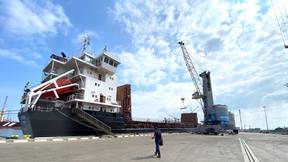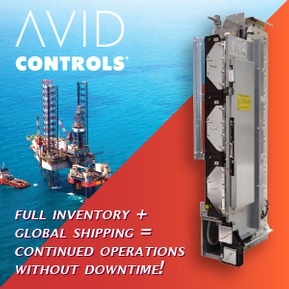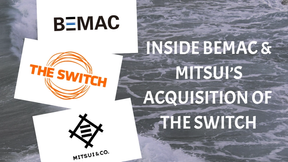Are We Looking at the Next Dry Bulk Super Cycle? Is It Even a Cycle?
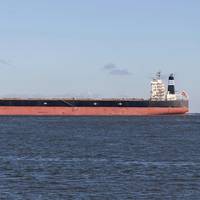
Throughout the first half of the year, talk of a new dry bulk super cycle has been on many lips as commodity prices have soared to multi-year highs. Freight rates and ship values have also risen but although they exceed prices seen during most of the 2010s, they are still far below super cycle levels.“Commodity prices have staged a comeback and are hovering around or above 2007 and 2008 levels. This has fuelled talk of a commodity super cycle. However, while dry bulk freight rates and ship values are currently high compared to the past 10 years…
Chinese Demand Keeping the Dry Bulk Market Going -BIMCO
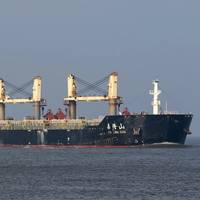
An impressive recovery in Chinese dry bulk imports has protected the industry from the effects of falling demand in the rest of the world. High deliveries and low contracting have left the orderbook at multi-year lows, but – with the poor outlook – the current influx of new dry bulk ships orders is not what is needed.Demand drivers and freight ratesThe biggest story in the dry bulk industry in recent months has been the strength of the recovery in major Chinese imports. These are up across the board…
Newbuild Spending Dropped Sharply in Q2
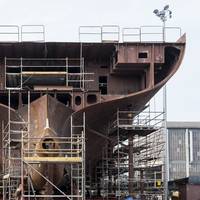
Enthusiasm for newbuild orders across most shipping markets has started to wane after more than $10 billion dollars were committed in the first quarter of 2018, according to VesselsValue. The total committed to new deliveries is now the lowest since the start of 2016.Ordering trends in the start of the year were highest in the markets that were seeing the highest returns. This includes the dry bulk and liquefied natural gas (LNG) carrier markets, while interest in the low earnings environment tanker markets was softer.
Interview: Mark Knoy, President and CEO, ACBL

American Commercial Barge Line (ACBL) named Mark K. Knoy as its president and chief executive officer in August 2011. Prior to joining ACBL, he was vice president of American Electric Power’s (AEP) Fuel, Emissions and Logistics Group and president of AEP River Operations, having joined AEP with its 2001 purchase of MEMCO Barge Line. From 1984 to 1994, he was owner/operator of The Mark Twain Towing Company and Delmar Marine, Inc., Pekin, Illinois. He began his career in 1973 working aboard towboats on the inland waterways as a deck hand and then as a captain.
Death Toll On The Rise at Chittagong Shipbreaking Yards
Two workers lost their lives at the Chittagong shipbreaking yards in the last two weeks, bringing the total death toll this year to six workers, reports NGO Shipbreaking Platform. On 6 May, 26-year-old Shahinoor died at Jamuna Shipbreaking yard. He fell from a great height when he was breaking the Hanjin Rome, which was the first vessel arrested after the collapse of one of the largest container ship companies last year – the Korean company Hanjin Shipping. The Hanjin Rome was put up for auction by the High Court in Singapore to be sold to the highest bidder early this year. Unsurprisingly, the highest bids for buying ships for scrap come from cash buyers that sell to the South Asian beaching yards who can offer higher steel prices with minimal disposal and labour costs and safeguards.
China's Steel, Coal Curbs a Double-edged Sword for Imports
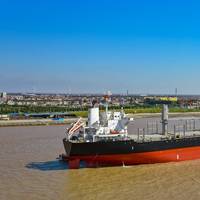
China's determination to tackle its choking pollution by cutting steel and coal capacity should be a long-term negative for exporters of iron ore and coal to the world's biggest commodity importer, but the reality is likely to be far more nuanced. "We will make our skies blue again," Premier Li Keqiang told the opening of parliament on Sunday. That's an unequivocal statement that gives political impetus to Beijing's plans to shutter more excess steel and coal capacity. The policy…
Dry Bulk Shipping Outlook Good
The dry bulk commodity imports into and exports out of China we have seen in the first half of 2016 are very positive – and nothing short of extraordinary, says BIMCO. But, putting it into perspective, compared to the devastating freight rate levels over the same period, it highlights that something is very wrong in the dry bulk market. The market is nowhere near balanced. BIMCO’s data on seaborne iron ore imports into China, shows a growth of 9.6% for H1-2016 as compared to H1-2015. With seaborne coal volumes shipped into China during H1-2016 being on par with H2-2015, this represents a 5.0% growth on H1-2015. A continued surge in thermal coal imports seems limited…
Capesize ‘Uptick’ Not Strong Enough for an Upsurge
April 19, 2016. The latest Dry Bulk Freight Forecaster from Maritime Strategies International* analyses the recent uptick in the Capesize market and considers the positive trends and mitigating factors. MSI finds the indicators are relatively positive in the short-term for iron ore trade. On the supply-side, iron ore prices of $50-60/tonne are in profitable territory for the big iron ore miners and will no doubt support the ramp up of new export capacity in Australia and Brazil. On the demand side, an uptick in steel prices and steel production in China in March underpins more positive sentiment. In addition, concerns of high iron ore stockpiles in China are overplayed…
Robust Commodity Imports Don't Tell the Whole China Story
The improved sentiment surrounding the outlook for China's demand for natural resources is being reflected by rising imports for some major commodities, but as usual it pays to be wary when interpreting the numbers. Customs data released this week shows strong import growth in the first two months of the year in copper and crude oil, a more modest expansion in iron ore and a surge in imports of alumina and bauxite, the main raw materials used to make aluminium. Taken at face value this lends support to the view that China is heading for a better spring season after a gloomy autumn and winter cast a pall over the outlook for demand in the world's largest consumer of commodities.
ACL 2008 4Q and Annual Results
American Commercial Lines Inc. (Nasdaq: ACLI) announced results for the fourth quarter and year ended December 31, 2008. Revenues for the quarter were $289.9m, a 4.2% decrease compared with $302.5m for the fourth quarter of 2007. Income from continuing operations for the quarter was $23.5m or $0.47 per diluted share, compared to $23.6m or $0.46 per diluted share for the fourth quarter of 2007. Earnings Before Interest, Taxes, Depreciation and Amortization (EBITDA) from continuing operations for the fourth quarter of 2008 was $56m with an EBITDA margin of 19.3% compared to $54.5m for the fourth quarter of 2007 with an EBITDA margin of 18.0%. The attachment to this press release reconciles net income to EBITDA.
ACL 3Q Results
American Commercial Lines Inc. (Nasdaq: ACLI) ("ACL" or the "Company") announced results for the three and nine months ended September 30, 2008. Revenues for the quarter were $313.7 million, a 21% increase compared with $258.4 million for the third quarter of 2007. Income from continuing operations for the quarter was $18.4 million or $0.36 per diluted share, compared to $15.9 million or $0.30 per diluted share for the third quarter of 2007. Michael P. Ryan, President and Chief Executive Officer, stated, "The third quarter presented us with both challenges and opportunities. We again had multiple significant weather events, including two hurricanes, which limited our operating capabilities throughout the quarter.
Hyundai Heavy Q3 Profit Drops
· Higher steel costs weigh on margins · Outlook weakens but top players set to weather downturn Hyundai Heavy Industries Co Ltd 009540.KS reported on Oct 30 that its quarterly net profit fell by a third, hit by rising raw materials costs and losses from the weaker won. The shipbuilding industry faces declining orders and falling shipping demand amid a deepening global downturn. Margins are set to fall with new ship prices turning lower and raw material prices rising. (Source: Reuters)
Mitsui Targets 64 Percent Profit Gain
Mitsui Engineering & Shipbuilding Co., 's second-largest shipbuilder by sales, forecast profit will rise 64 percent in three years, aided by record demand. The shares gained the most in two weeks, Bloomberg reported. Operating profit may reach $534min the year through March 2011, from 33 billion yen estimated for the year just ended, the Tokyo-based company said today in a statement. Sales are forecast to rise 27 percent to 800 billion yen in three years. No net income targets were given. Mitsui Engineering, with a three-year order backlog, said today it will accelerate spending to expand production capacity. The company is counting on rising sales of its vessels to counter higher steel costs and a stronger yen that would erode the value of overseas earnings.
Steel Prices, Repair Costs Soar
Latest quotes from China are showing radically higher steel repair figures, according to sources. From about 70-80 cents per kg a year ago, steel repairs are now being quoted at $1.30-1.50 per kg by Chinese repairers. “This reflects the fact that they don’t really want the work”, said one source. “They’re full!”. Nevertheless these new price levels are still well below Black Sea rates of close to $2 per kg and south European prices of well over $3 per kg. Despite a period of unprecedented profitability in most key markets, owners’ approach to ship repair has not changed, repair sources are saying. First, owners sought to postpone repairs as long as possible to make the most of soaring spot and short-term rates.
China: Capacity Soars, but is Quality, Finance Keeping Pace?
For those who have been in shipping for a decade or three, warnings of excess shipbuilding capacity will engender a sense of déja vu. First it was the Japanese, then the South Koreans and now, together with those, the Chinese. Clarkson Asia managing director Tim Huxley, addressing the International Union of Marine Insurance (IUMI) conference in Singapore this week, identified rapid shipyard capacity expansion in China, coupled with productivity increases at yard facilities in Japan and South Korea. Apart from a global economic crisis, excess capacity now posed the single biggest threat to the world’s shipbuilding industry, Huxley declared.
Steel Prices Stay Firm
With global steel demand running at an unprecedented level, rapidly rising prices have been a constant headache for ship repairers, as well as ship builders, in recent months. And despite sharply higher steel output, there is little sign of any softening as the New Year dawns. According to the International Iron and Steel Institute (IISI), crude steel production for the 62 countries reporting their figures was 945m tonnes by the end of November, up 9% on the corresponding period one year earlier. Analysts were expecting total production to break through the billion tonne mark easily by the end of the year for the first time ever. IISI figures show that China accounted for the largest increase in output.
Korean Shipbuilders Aim for $36b in Orders
Korea's top-three shipbuilders are eyeing $36b in sales this year, down from a record $37b last year. Korean shipbuilders secured almost half of the $100b in global orders last year offering a competitive balance of price and quality. But this year the shipyards are facing higher steel plate prices, while a strengthening Korean won against the dollar is eroding profits made from U.S. dollars. Korea's Hyundai Heavy Industries is the world's largest shipbuilder followed by Daewoo Shipbuilding and Samsung Heavy. Source: Arirang News
Biggest Shipyards May Keep High Prices to Counter Costs
Bloomberg reported that Hyundai Heavy Industries Co. and other shipbuilding companies may succeed in keeping vessel prices at record highs for a third year as they seek to shield earnings against dropping orders and higher steel costs. The top-three yards, Hyundai Heavy, Daewoo Shipbuilding & Marine Engineering Co. and Samsung Heavy Industries Co., all from South Korea, will book new orders around today's all-time highs, according to four out of five analysts surveyed by Bloomberg. The companies will give their outlooks for 2007 as early as this week. South Korea's yards took almost half of this year's orders in the world's $100 billion ship industry, as transporters turned to them for the largest and most expensive vessels.


